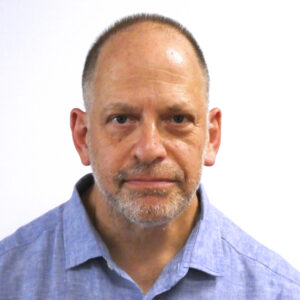 Senior Fellow
Senior Fellow
[email protected]
Washington DC
202.601.2351
Activities
Miles Pomper is a Senior Fellow in the Washington DC office of CNS. His work focuses on nuclear energy, nuclear nonproliferation, nuclear security, and nuclear arms control. He holds a master’s degree in international affairs from Columbia University and a master’s degree in journalism from Northwestern University.
Areas of Research
- Nuclear energy
- Nuclear nonproliferation and arms control
- Nuclear security
Background
Before joining CNS he served as Editor-in-Chief of Arms Control Today from 2003-2009. Previously, he was the lead foreign policy reporter for CQ Weekly and Legi-Slate News Service, where he covered the full range of national security issues before Congress, and a Foreign Service Officer with the US Information Agency.
Education
- BA in History from Columbia University
- MA in international affairs from Columbia University
- MA in journalism from Northwestern University
CNS Work
- Would Putin use nuclear weapons? An arms control expert explains what has and hasn’t changed since the invasion of Ukraine
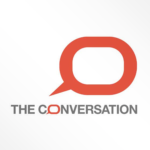 So far, arms control has played its intended role of limiting the scope and violence in Ukraine.
So far, arms control has played its intended role of limiting the scope and violence in Ukraine. - OP #54: Implications of Russia’s Activities in the Middle East and North Africa Region for U.S. Strategy and Interests
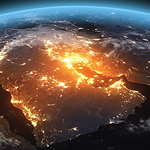 Russia’s ability to project power into the region remains limited today, and the status quo seems tolerable. But there are risks to U.S. interests in the future.
Russia’s ability to project power into the region remains limited today, and the status quo seems tolerable. But there are risks to U.S. interests in the future. - CNS Visiting Fellows Participate in the Washington Pilot Project
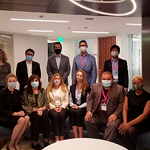 Mid-career experts learned from D.C. based experts from the Department of State, Department of Energy, Nuclear Threat Initiative (NTI), CNS, Arms Control Association and the National Academy of Sciences.
Mid-career experts learned from D.C. based experts from the Department of State, Department of Energy, Nuclear Threat Initiative (NTI), CNS, Arms Control Association and the National Academy of Sciences. - NATO’s Nuclear Deterrent Gets a Reprieve—for Now
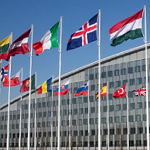 The Strategic Stability Dialogue appears to be off to a promising start, and hopes are high that the talks will lead to formal negotiations for a successor to the newly extended New START treaty.
The Strategic Stability Dialogue appears to be off to a promising start, and hopes are high that the talks will lead to formal negotiations for a successor to the newly extended New START treaty. - OP #52: Scientific Risk Assessment of Genetic Weapons Systems
 Examines potential for precision medicine to be used in a genetic weapon system, state capabilities and motivations, and offers policy recommendations.
Examines potential for precision medicine to be used in a genetic weapon system, state capabilities and motivations, and offers policy recommendations. - China’s Nuclear Build-Up Could Make for a More Dangerous Future
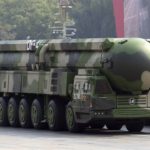 Satellite photos appear to show that China is building vast fields of new missile silos in its sparsely populated western region.
Satellite photos appear to show that China is building vast fields of new missile silos in its sparsely populated western region. - OP #51: The Final Stretch: Tackling Remaining HEU Challenges
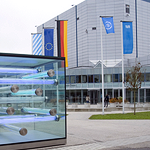 HEU represents a highly attractive target for terrorists and proliferators.
HEU represents a highly attractive target for terrorists and proliferators. - How to Make Sure Neutrons Save Lives Instead of End Them
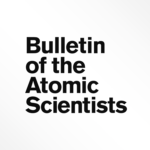 The authors call for an international mechanism to anticipate worldwide research reactor needs and how to meet them efficiently and minimizing the use of highly enriched uranium.
The authors call for an international mechanism to anticipate worldwide research reactor needs and how to meet them efficiently and minimizing the use of highly enriched uranium. - OP #49: A Guide to Investigating Outbreak Origins
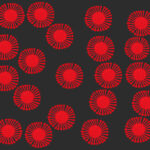 Nature versus the laboratory.
Nature versus the laboratory. - Asia-Pacific Perspective on Bioweapons & Nuclear Deterrence
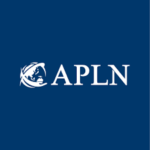 The threat and control of one category of WMDs affects that of the other.
The threat and control of one category of WMDs affects that of the other.
Select Bibliography (Recent)
- “The Proliferation of Weapons of Mass Destruction in the Modern World: Trends and Changing Regimes,” in International Politics in Times of Change, Nicholas Tzidakis, Ed. Springer 2012.
- “How to Unsnag US-South Korea Nuclear Negotiations,” Bulletin of the Atomic Scientists, September 25, 2012.
- “Nuclear Power and Proliferation: The Risks of the Nuclear Renaissance,” in Nuclear Power and Energy Security in Asia, Rajesh Basrur, Cole Harvey, Koh Swee Lean Collin, eds., (New York, NY: Routledge, 2012).
- “The Seoul Nuclear Security Summit: How Much of a Success?” Academic Paper Series, Korea Economic Institute, May 23, 2012.
- “Domestic and International Politics of Spent Fuel in South Korea: Are We Approaching Meltdown?” with Seong-Won Park and Lawrence Scheinman, Academic Paper Series: On Korea, Vol. 4, Korea Economic Institute, 2011.
- “Going Global: Issues Facing South Korea as an Emerging Nuclear Exporter,” with Chen Kane and Stephanie Lieggi, Tomorrow’s Northeast Asia: Joint US-Korea Academic Studies, Volume 21, Korea Economic Institute, 2011.
- “The IAEA’s Political Balancing Act,” with Michelle Dover, World Politics Review, September 2011.
- “Bringing Belarus Back to the Table,” WMD Junction, September 20, 2011.
- “Toward the Global Norm: Supporting the Minimization of Highly Enriched Uranium in the Civilian Sector,” with Cole J. Harvey and David Slungaard, Issue Brief No. 12, Asan Institute, June 2011.
- “Japan’s Nuclear Crisis: The Fine Line between Security and Insecurity,” Bulletin of the Atomic Scientists, March 22, 2011.
- “Nuclear Power and Spent Fuel in East Asia: Balancing Energy, Politics and Nonproliferation,” with Ferenc Dalnoki-Veress, Stephanie Lieggi, and Lawrence Scheinman, The Asia-Pacific Journal vol. 25, June 21, 2010.
- “US International Nuclear Energy Policy: Change and Continuity,” Nuclear Energy Futures Paper #10, Centre for International Governance Innovation, January 2010.
- “Reducing and Regulating Tactical (Nonstrategic) Nuclear Weapons in Europe: Moving Forward?” with Johan Bergenas, William Potter, and Nikolai Sokov, April 2010.
- “Managing U.S. Missile Defenses and Russian Concerns,” with Dennis Gormley and Nikolai Sokov, Four Emerging Issues in Arms Control, Disarmament, and Nonproliferation: Opportunities for German Leadership, James Martin Center for Nonproliferation Studies, July 14, 2009.
- “Reducing and Regulating Tactical (Nonstrategic) Nuclear Weapons in Europe,” with William Potter and Nikolai Sokov, December 2009.
- “The Russian Nuclear Industry: Status and Prospects,” Nuclear Energy Futures Paper #3, Centre for International Governance Innovation, January 2009.
- “Congress, Culture, and the Caspian,” with David King, in The Limits to Culture: Foreign Policy, Islam, and the Caspian, Brenda Shaffer, ed., (Cambridge, MA: Belfer Center for Science and International Affairs, 2006).
